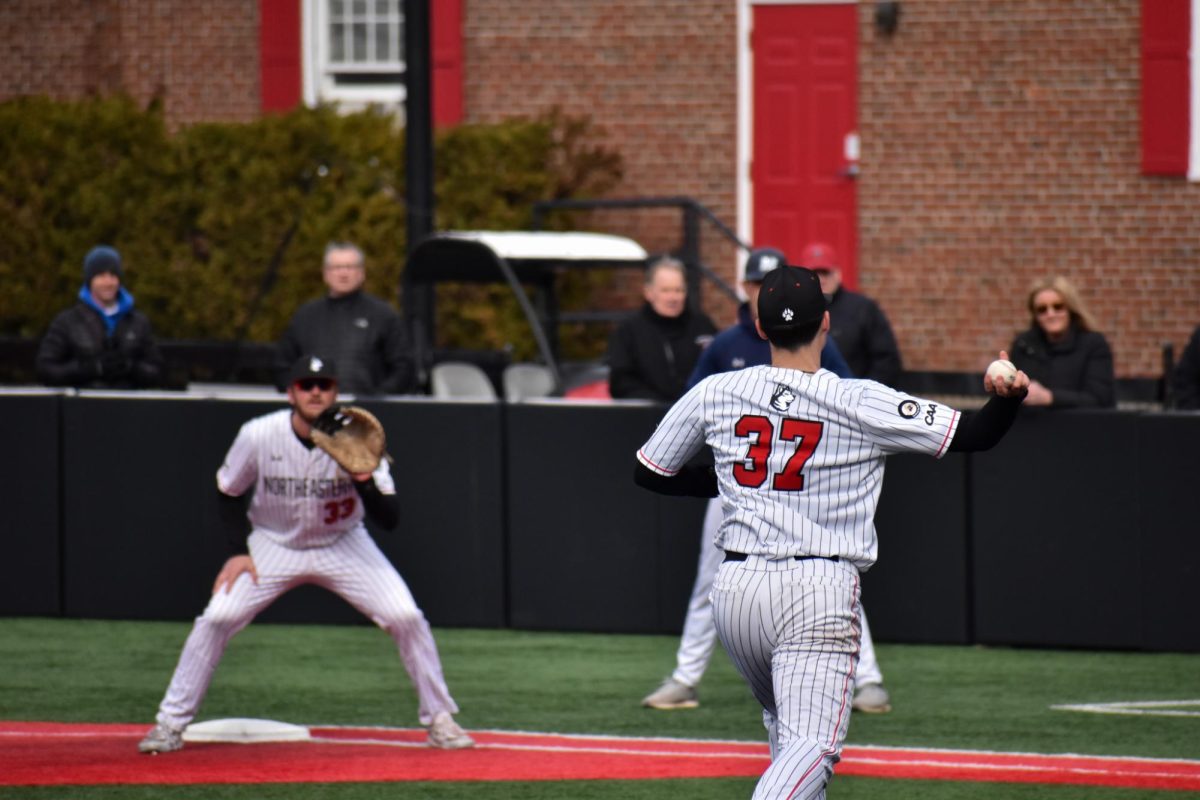By Mary Whitfill, editor-in-chief
Women are bossy; men are good leaders. Women are cold-hearted; men are goal-oriented. Women are annoying; men are knowledgable. This is the double standard revealed in a recently released interactive chart made by Benjamin Schmidt, an assistant professor of history at Northeastern. The chart documents how many times men and women were characterized by certain adjectives in their Rate My Professor reviews.
A common tool used to review professors – and often air grievances – Rate My Professor compiles hundreds of student reviews to give instructors a grade based on how students felt they performed. To create his chart, Schmidt wrote an algorithm that analyzed all of the most commonly used words in the site’s reviews and mapped how often they were used per gender.
“Something people talk about a lot is the way male professors and female professors end up getting treated and the ways that their evaluations reflect on some particular words that only show up in the reviews of male or female professors,” Schmidt said. “Rate My Professor is not used for tenure and promotion and evaluations and all of that, but it at least lets us have some sense on a really big scale of what’s going on.”
The chart makes the unconscious bias and its implications stretch beyond the professor-student setting. The interactive tool allows users to type any word, from brilliant to beautiful, and it maps how many times the word was used and for which gender.
According to Schmidt’s visual representation of the pre-written reviews, male professors are much funnier than their female counterparts, and women are far-and-above ditzier than men.
Although the idea of gendered language in the workplace is not a new one, Schmidt’s visualization makes certain biases clear. The chart shows that women are more likely to be criticized for behaviors men are praised for, and a woman’s appearance is more likely to be a topic of conversation while men are judged for their intellect.
For Northeastern freshman international affairs majorKathleen Adelman, this doesn’t come as a surprise.
“I think the female teachers are a lot more evaluated on their looks,” Adelman said. “For male teachers, they’re more evaluated on how well they teach. I try to be careful when reading professor reviews on the Internet, especially when I’m reading reviews of female professors. When they’re strong women, they’re often labeled as bossy.”
Schmidt says this bias is not limited to students’ direct reactions with their professors.
“One of the things that other studies have found is that if you have an online class that is being taught where students never see their professor, is that if you give that student a female name rather than a male name then students will rate that professor lower on their evaluations even though it is exactly the same person,” Schmidt said. “There seems to be some sort of systemic bias.”
Denise Dunlap, assistant professor of international business and strategy, is one of the most rated at Northeastern on Rate My Professor. Her 59 ratings give her an overall 4.0/5 quality score and rate her high on helpfulness.
“As someone who has been in the business world for many years, I thought I needed to act like a man to be successful,” Dunlap said. “Are other female professors feeling they need to behave like these male characteristics? As women, are we behaving and teaching other women to behave that way?”
In the business world, Dunlap thinks traditionally male-related adjectives are more commonly associated with success than those used to describe females. She cited assertive, decisive and independent as words used to describe men that correlate with success. More traditional female descriptors, such as passionate, long-term thinker and collaborator, don’t carry that connotation, she said.
While this may be true in today’s professional society, Dunlap said she thinks the international business world is changing and beginning to value these “feminine” qualities.
While a strong divide could be seen between men and women on certain buzz words, such as ugly and abrasive, the genders were rated fairly equally when it came to being lazy, easy and busy.
Sophomore psychology major Megan Gallagher said she doesn’t see gender bias.
“I look at how they grade them and how the class is scaled,” she said.
This experiment was not the first based on Schmidt’s work with words. Earlier this year, Schmidt analyzed the language from every State of the Union address dating back to 1970, showing how America’s interests and concerns have evolved throughout history.
“My research at Northeastern is about working with really large collections of texts and finding new ways to open them up for visualization and analysis, so I sort of had the tools in place already to just drop this data set into and see what it looked like,” Schmidt said.
While his word analytics are likely to continue, Schmidt is unsure if this is where his gender-bias project will end.
“If I were to keep working on this, which I am not actually sure I am going to, the next step would be to look at the numerical evaluations of it a little bit,” Schmidt said. “And think about how the numbers that are associated with the text differ between genders.”
Even if this is the end of the road for Schmidt, Dunlap hopes this is able to start a conversation that goes beyond a chart on a screen.
“I think we aren’t doing a good enough job in teaching the importance of how we evaluate people,” she said. “What excites me most about this study is that maybe it will open up discussions in the business world we just aren’t having.”
Photo by Scotty Schenck




















